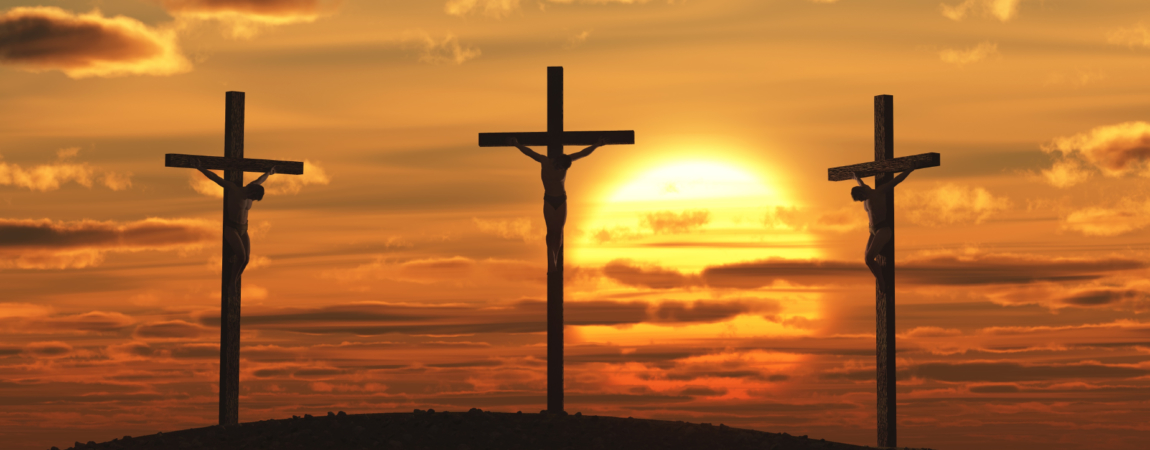Summary & Sections
- (Biblically): What is the Sabbath?
- Creation & Sanctification By God (Genesis 2:2–3)
- Perpetual Sign & Covenant given by God (Exodus 31:16)
- The 4th Commandment (Exodus 20:8–11)
- Sabbath, Sign of Sanctification, Blessings & Warnings (Ezekiel 20:12–13)
- Historical Summary of God’s judgment for breaking God’s Law (& Sabbaths)
- When is the Sabbath?
- What does the Sabbath Mean for Us (today)?
- Related Studies
- Common Sabbath Objections
What is the Sabbath?
(Side Note: The Sabbath Pre-dates the Jews, it was given at creation Gen 1, It’s not “Jewish“, its God’s, he says “Its Mine” and for “(anyone who calls themselves ‘God’s) My people”
Biblical Definition: What is the Sabbath?
The Sabbath is set apart as a day of rest and worship, sanctified by God Himself. It is to be observed every seventh day, refraining from work and dedicating the day to the Lord.
- Rest
- 7th Day
- Perpetual
- A Sign
- A Covenant
- Holy
- Remember God
- Who Sanctifies Us
- Set Apart
Creation & Sanctification by God (Genesis 2:2–3)
“And on the seventh day God ended his work which he had made; and he rested on the seventh day from all his work which he had made. And God blessed the seventh day, and sanctified it (set apart): because that in it he had rested from all his work which God created and made.”
God Himself rests, blesses, and sets apart the seventh day at Creation—before Sinai and before Israel as a nation.
1. The Biblical Hebrew Word for “Rest”
The main Hebrew word translated as “rest” in relation to the Sabbath is שָׁבַת (shāvat) — Strong’s H7673.
-
Root meaning: “to cease,” “to stop,” “to desist,” “to rest (from labor).”
-
It does not primarily mean to sleep or relax, but to cease from activity or work — to pause from creating or doing.
2. Key Verses Using Shāvat
a. Genesis 2:2–3
“And on the seventh day God ended His work which He had made; and He rested (וַיִּשְׁבֹּת vayyishbōt) on the seventh day from all His work which He had made.”
-
Here shāvat means that God ceased His creative activity.
-
The focus is on completion and cessation, not fatigue.
God was not tired — He stopped to sanctify time.
Perpetual Sign & Covenant given from God (Exodus 31:16)
“Therefore the children of Israel shall keep the Sabbath, to observe the Sabbath throughout their generations as a perpetual covenant. It is a sign between me and the children of Israel forever: for in six days the Lord made heaven and earth, and on the seventh day he rested, and was refreshed.”
Language of “perpetual,” “forever,” “sign,” and “covenant” underscores ongoing relevance tied to Creation.
The 4th Commandment (of the 10 C) (Exodus 20:8–11)
“Remember the sabbath day, to keep it holy. Six days shalt thou labour, and do all thy work: But the seventh day is the sabbath of the Lord thy God: in it thou shalt not do any work, thou, nor thy son, nor thy daughter, thy manservant, nor thy maidservant, nor thy cattle, nor thy stranger that is within thy gates: For in six days the Lord made heaven and earth, the sea, and all that in them is, and rested the seventh day: wherefore the Lord blessed the sabbath day, and hallowed it (made it Holy).”
-
Israel’s rest mirrors God’s own pattern.
-
The Sabbath rest is therefore imitative (imitating God’s rest) and covenantal (a sign between God and His people).
- It’s the only one of the 10 Commandments, that he said tor “Remember” (forever), and its the only one that modern day Christianity Doesnt do. Why do they obey 9 out of the 10 Commandments?
Sabbath, Sign of Sanctification, Blessings & Warnings (Ezekiel 20:12–13)
“Moreover I also gave them My Sabbaths, to be a sign between them and Me, that they might know that I am the Lord who sanctifies them. Yet the house of Israel rebelled against Me in the wilderness; they did not walk in My statutes; they despised My judgments, ‘which, if a man does, he shall live by them’; and they greatly defiled My Sabbaths. Then I said I would pour out My fury on them in the wilderness, to consume them.”
Blessings from God for Honoring the Sabbath
Isaiah 58:13–14
“If you turn away your foot from the Sabbath,
From doing your pleasure on My holy day,
And call the Sabbath a delight,
The holy day of the Lord honorable,
And shall honor Him, not doing your own ways,
Nor finding your own pleasure,
Nor speaking your own words,
14 Then you shall delight yourself in the Lord;
And, I will cause you to ride on the high hills of the earth
And feed you with the heritage of Jacob your father.
The mouth of the Lord has spoken.”
Sabbath functions as a covenant sign; Both Honoring and profaning it was and is treated seriously by God.
Historical Summary List — Punishments for Disobedience to God’s Law (Including breaking the Sabbaths)
-
-
The Flood (Noah’s day): God destroyed all flesh with water for corruption and lawlessness (Genesis 6:5–13).
-
The Tower of Babel: God confused languages and scattered the nations for rebellion against His command (Genesis 11:1–9).
-
Sodom and Gomorrah: Fire and brimstone destroyed cities for unrestrained sin and defiance (Genesis 19:24–25).
-
Israel in the Wilderness: Plagues, serpents, and death for continual disobedience and Sabbath-breaking (Numbers 14; 16; 25; Exodus 31:14–15).
-
The Ten Northern Tribes (House of Israel): Divorced and exiled by Assyria for idolatry and rejecting God’s statutes and Sabbaths (2 Kings 17:7–18; Ezekiel 20:12–13).
-
The Two Southern Tribes (Judah and Benjamin): Exiled to Babylon for profaning Sabbaths and breaking covenant law (Jeremiah 17:27; Leviticus 26:33–35; 2 Chronicles 36:21).
-
The First Temple Destroyed (586 B.C.): Burned by Babylon when Jerusalem rejected the prophets and polluted the Sabbaths (2 Kings 25:8–10).
-
The Second Temple Destroyed (70 A.D.): Leveled by Rome for rejecting Messiah and continuing covenant disobedience (Luke 19:41–44; 21:5–6, 20–24).
-
Death Penalty under the Law: Individuals who worked on the Sabbath were executed or “cut off” (Exodus 31:14–15; Numbers 15:32–36).
-
National Exile & Land Desolation: The land “kept Sabbath” while the people were removed (Leviticus 26:34–35).
-
Loss of Blessing & Divine Favor: Curses, famine, and enemy oppression replaced covenant prosperity (Leviticus 26:14–16; Deuteronomy 28:15–68).
-
Destruction of the Present World: Future global judgment by fire upon all who persist in lawlessness and reject God’s commandments (2 Peter 3:7–10; Isaiah 24:5–6; Revelation 14:12; Revelation 16:1–21).
-
Spiritual Death / Exclusion from God’s Rest: Those who refuse obedience and faith will not enter His eternal Sabbath (Hebrews 4:9–11; Matthew 7:21–23).
-
🕊️ Summary Thought: “For God shows no partiality”- Romans 2:11
From the Flood to the final fire, every major act of divine judgment traces back to humanity’s refusal to obey God’s Law including sanctifying His Sabbaths—where disobedience brings death, exile, or destruction, but obedience brings blessing and rest. God gave us his son so that we would have forgiveness and be obedient our of gratitude, giving us his spirit so obedience is not a burden.
When is the Sabbath?
Biblically, the weekly Sabbath is the seventh day of the week (Exod 20:10). In the New Testament, the “first day of the week” occurs after the Sabbath (Mark 16:1–2), which places the Sabbath the day before Sunday—i.e., Saturday. 
When does it start and end?
In Scripture, days are measured from evening to evening: “And there was evening and there was morning…” (Gen 1). For sacred rest days, the command is explicit: “from evening to evening you shall celebrate your sabbath” (Lev 23:32). Practically, this means the weekly Sabbath runs from Friday sundown to Saturday sundown.
- Start: Friday at sunset (“evening”).
- End: Saturday at sunset (close of the seventh day).
- Witness in the Gospels: The Sabbath is the day before the “first day of the week” (Mark 16:1–2; Luke 23:54–56).
This aligns the creation pattern (six days of labor, one day of holy rest) with the weekly rhythm God established.
3. What This Means for Us
a. Imitating God’s Pattern
-
The Sabbath is not human invention; it is patterned after God’s own rhythm of creation and cessation (Gen. 2:2–3).
-
To “rest” means to recognize completion and sufficiency — to stop striving and acknowledge God as Creator and Provider.
b. Covenantal Sign
-
Exodus 31:13: “It is a sign between Me and you throughout your generations, that you may know that I am the LORD who sanctifies you.”
-
Resting is trusting: choosing to stop working in faith that God sustains us.
c. Prophetic Symbol of Redemption
-
Deuteronomy 12:9–10 connects menuchah (rest) with entering the Promised Land.
-
Hebrews 4:9–11 (Greek sabbatismos, “Sabbath rest”) ties it to eternal rest in Messiah — a call to “cease from our own works” as God did.
d. Spiritual Meaning
-
To “rest” on Sabbath means to cease striving, trust in God’s provision, and delight in His holiness (Isaiah 58:13–14).
-
It’s both physical (stop working) and spiritual (find peace in God’s completed work).
4. Summary
| Aspect | Hebrew Word | Meaning | Application |
|---|---|---|---|
| Verb | שָׁבַת (shāvat) | To cease from labor | Stop working; acknowledge God’s sovereignty |
| Noun | שַׁבָּת (shabbat) | Day of cessation | Weekly reminder of God’s creation and redemption |
| Result | מְנוּחָה (menuchah) | Resting place, peace | Entering God’s presence and spiritual rest |
✨ In short:
To “rest” (shāvat) is to cease from our own labors in imitation of God,
so that we may enter His peace (menuchah) — both weekly and eternally.
Related Studies

